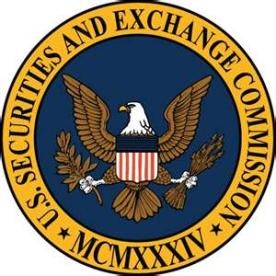On November 17, 2014, the Securities and Exchange Commission’s Office of the Whistleblower (“OWB”) released its fourth Annual Report on the Dodd-Frank Whistleblower Program to Congress, which details information on OWB’s activities and bounty payouts for the fiscal year, as described in our posts on the 2012 and 2013 Annual Reports.
 In its 2014 report, the SEC highlights that since the inception of the whistleblower program in 2011, the Commission has granted awards to a total of fourteen whistleblowers, and nine of these awards were issued in 2014. The SEC also stressed that the magnitude of the award payments was “record-breaking” in 2014 in that it authorized an award of more than $30 million in September 2014. In addition, the SEC pointed out that it brought its first enforcement action against an employer for retaliating against a whistleblower under Dodd-Frank’s anti-retaliation provision.
In its 2014 report, the SEC highlights that since the inception of the whistleblower program in 2011, the Commission has granted awards to a total of fourteen whistleblowers, and nine of these awards were issued in 2014. The SEC also stressed that the magnitude of the award payments was “record-breaking” in 2014 in that it authorized an award of more than $30 million in September 2014. In addition, the SEC pointed out that it brought its first enforcement action against an employer for retaliating against a whistleblower under Dodd-Frank’s anti-retaliation provision.
Background
OWB facilitates the Dodd-Frank Whistleblower Bounty Program and coordinates with the SEC’s enforcement branch to investigate whistleblower tips and complaints. OWB is required to report to Congress annually on the status of the whistleblower program and must provide information on the number of awards granted, the amount of the awards and the type of cases in which the awards were issued in the preceding fiscal year.
Nine Awards Totaling More Than $31 Million in Payouts in FY2014
OWB made nine bounty payouts during Fiscal Year 2014, which is more than the five issued in 2012 and 2013 combined. On September 22, 2014, the Commission authorized a record-breaking award of more than $30 million, which is the largest bounty to be paid out under the Commission’s whistleblower program. This award was issued to a whistleblower in a foreign country, and the SEC pointed out that “allowing foreign nationals to receive awards under the program best effectuates the clear Congressional purpose underlying the award program, which was to further the effective enforcement of the U.S. securities laws by encouraging individuals with knowledge of violations of these U.S. laws to voluntarily provide that information to the Commission.” The other awards ranged from $150,000 to $875,000, and one award was structured so that the whistleblowers would receive certain percentages of the sanctions recovered by the SEC but did not specify the dollar amounts. In making one award for $400,000, the SEC explained that, although a self-regulatory organization inquired about the company’s activity before the whistleblower reported to the SEC, the whistleblower’s aggressive internal reporting justified the award and waiver of the “voluntary” requirement.
The SEC also pointed out that “[t]here are commonalities among the tips or complaints that were submitted by these successful whistleblowers.” The Commission explained that the information provided by award recipients identified specific individuals involved in the fraud or pointed to specific documents that substantiated their allegations. The Commission also highlighted that these whistleblowers timely reported the alleged misconduct as it was relatively current or ongoing. According to the Commission, over 40% of the individuals were current or former employees and over 80% of these whistleblowers raised their concerns internally before reporting to the SEC.
The SEC also noted that it denied whistleblower claims in 2014, and the three primary reasons for denial were: (1) the claimant’s information was not “original” because it was not provided to the SEC for the first time after July 21, 2010; (2) the claimant failed to submit his or her application for award within 90 days of the posting of the Notice of Covered Action; and (3) the claimant’s information did not lead to a successful enforcement action because it did not cause the enforcement staff to commence an investigation or significantly contribute to the success of the action.
SEC Supplements Payouts from Previous Years
In addition to its nine new whistleblower awards, OWB paid additional funds to whistleblowers who received awards in previous years due to its collection of additional monetary sanctions since the issuance of the original award. For example, the Commission supplemented its first whistleblower award of $50,000 from 2012, and announced that the whistleblower would receive an additional $150,000. The whistleblower’s payout currently exceeds $385,000, which is more than seven times the original payment amount. The SEC also supplemented its $14 million award issued in September 2013 with a payment exceeding $140,000. Notably, the $14 million award is the second-largest award issued under the whistleblower program.
Increase in Whistleblower Tips Reported
The number of whistleblower tips received by OWB has increased each year since the program’s implementation, with a 20% increase from 2012 to 2014. In 2014, OWB received 3,620 whistleblower tips, which is more than the 3,238 in 2013 and the 3,001 in 2012. The three most frequent types of complaints has remained consistent since the program’s inception, with the most common reports being corporate disclosures and financials (16.9%), offering fraud (16%), or manipulation (15.5%).
OWB received complaints from all fifty states with the highest number of complaints coming from California (556), Florida (264), Texas (208) and New York (204). In addition, OWB received whistleblower reports from individuals in 60 different countries. Besides the United States, OWB received the highest number of tips in 2014 from the United Kingdom (70), India (69), Canada (58), China (32) and Australia (29).
SEC Brought its First Enforcement Action under the Anti-Retaliation Provision of Dodd-Frank
Consistent with its report that it was coordinating with enforcement staff to identify instances where whistleblowers were being retaliated against, in June 2014, the SEC brought its first enforcement action under the anti-retaliation provision of Dodd-Frank. The SEC brought an enforcement action against Paradigm Capital Management claiming that it retaliated against a trader who reported to the SEC that the company had allegedly engaged unlawful transactions. The Commission ordered the company to pay $2.2 million to settle the employee’s retaliation claim. The Commission notes in the Report that it intended its sanction to send “a strong message to employers that retaliation against whistleblowers in any form is unacceptable.”
Implications
The SEC’s whistleblower program gained a lot of momentum this past year. At the end of FY 2013, the SEC’s largest bounty award to date was $14 million, and in 2014, the SEC more than doubled that with a $30 million award. In addition, the Commission demonstrated that it will supplement whistleblower awards as it continues to recover monetary sanctions relating to those enforcement actions.
Not only did the number of whistleblower tips and the magnitude of whistleblower awards increase significantly, but the SEC expanded the scope of its enforcement actions to include anti-retaliation claims under Dodd-Frank. Given the $2.2 million settlement that resulted from its first anti-retaliation enforcement action, we can expect that the SEC will continue to pursue enforcement actions in 2015.
In light of the SEC’s continued focus on its whistleblower program and now on the enforcement of Dodd-Frank’s anti-retaliation provision, we can also expect that the number of whistleblower tips, enforcement actions and awards will continue to increase in 2015. The increase in the magnitude of the SEC’s bounty payouts and its willingness to supplement previous awards will only provide additional incentives for employees to report alleged violations either internally or to the SEC.
The SEC also made it clear that a large percentage of its awards are given to whistleblowers who reported internally and only went to the SEC after the company failed to take remedial action to address the alleged wrongdoing. Accordingly, it remains essential for employers to ensure that they have mechanisms to receive and timely respond to internal complaints.




 i
i